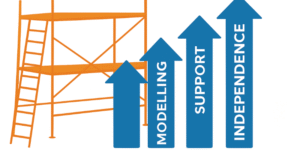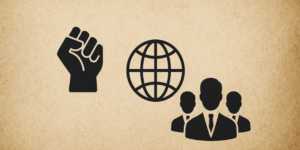In today’s fast-paced and unpredictable work environment, adaptability and flexibility have become indispensable qualities that determine professional success (Smith, 2019). The world of work is being transformed by technological innovation, globalisation, and economic uncertainty, requiring employees and organisations alike to navigate constant change with agility. Adaptability refers to an individual’s capacity to adjust to new conditions, roles, or environments, while flexibility denotes the willingness and ability to modify behaviour, thinking, or strategies to respond effectively to evolving demands. Together, these traits enhance one’s employability, promote innovation, and ensure long-term resilience in an ever-changing professional landscape (Jones & Brown, 2020).
1.0 Embracing Change
At the heart of adaptability lies the ability to embrace change. In modern workplaces, change is constant—from technological advancements to structural reorganisations and shifts in customer expectations. According to Jones and Brown (2020), employees who embrace change with openness and enthusiasm are more likely to thrive. This mindset enables individuals to view transitions not as threats, but as opportunities for growth. For example, the global shift towards remote work during the COVID-19 pandemic demonstrated how adaptable employees could quickly adopt new digital tools and communication platforms to maintain productivity. Organisations such as Microsoft and Deloitte reported that teams with a culture of adaptability adjusted faster and maintained higher levels of collaboration (Deloitte, 2021). Therefore, being open to change is not only beneficial but necessary for sustained success in today’s workplace.
2.0 Problem-Solving
Problem-solving is a core manifestation of flexibility. Flexible employees are creative thinkers who can reframe challenges and design innovative solutions (Robinson & Patel, 2018). When faced with unexpected problems, they do not rely solely on established methods but are willing to experiment with new approaches. For instance, during supply chain disruptions, organisations that encouraged adaptive problem-solving—such as Amazon’s rapid diversification of logistics networks—demonstrated higher operational resilience (Harvard Business Review, 2021). According to Robinson and Patel (2018), problem-solving in adaptable individuals is characterised by resourcefulness, critical thinking, and strategic agility. They can shift between analytical and creative thinking modes, ensuring they overcome challenges efficiently.
3.0 Resilience
Resilience—the ability to recover from setbacks and persist through challenges—is a vital component of adaptability. In the context of work, resilience enables individuals to cope with stress, uncertainty, and failure constructively (Clark & Davies, 2019). Adaptable employees exhibit emotional strength and mental endurance, allowing them to maintain motivation even during turbulent times. For instance, start-ups often face volatile environments where setbacks are frequent; employees with resilience can learn from failure and adapt their strategies accordingly. Research in the Journal of Organisational Psychology found that resilient individuals were 43% more likely to recover quickly from work-related stress (Clark & Davies, 2019). This resilience contributes to organisational stability and promotes a supportive workplace culture where mistakes are seen as learning opportunities rather than failures.
4.0 Open-Mindedness
Open-mindedness plays a crucial role in enhancing adaptability. It involves being receptive to diverse ideas, feedback, and alternative perspectives (Garcia & Nguyen, 2020). Open-minded employees can adjust their viewpoints based on evidence or new information, which is vital for effective decision-making. For example, leaders who encourage open dialogue within teams—such as through brainstorming sessions or collaborative platforms—create an atmosphere where innovation flourishes. According to Garcia and Nguyen (2020), open-minded individuals are more inclusive and empathetic, fostering stronger interpersonal relationships. In a multicultural workforce, open-mindedness also helps navigate cultural differences, promoting diversity, equity, and inclusion.
5.0 Time Management
Time management is another essential skill underpinning adaptability. The ability to prioritise tasks and adjust to shifting deadlines allows employees to maintain productivity in dynamic environments (Thompson & Miller, 2021). Adaptable individuals plan efficiently but remain flexible enough to reallocate resources when priorities change. For example, project managers often need to reassess timelines and redistribute workloads when unexpected challenges arise. Effective time management ensures that these changes do not derail progress. Thompson and Miller (2021) note that flexible professionals employ tools such as agile scheduling and digital time-tracking to balance multiple demands simultaneously. As a result, they can sustain efficiency without compromising quality.
6.0 Communication
Effective communication is at the heart of flexibility. The ability to adapt one’s communication style to suit different audiences and contexts strengthens collaboration and trust (Turner & Green, 2017). In global or hybrid teams, communication flexibility may involve adjusting tone, language, or medium to ensure clarity across diverse cultural and technological boundaries. For instance, virtual team leaders who communicate with empathy and transparency often see higher engagement and morale. Turner and Green (2017) argue that adaptable communicators foster psychological safety, encouraging open dialogue and constructive feedback. Clear communication also supports adaptability by minimising misunderstandings and facilitating smooth transitions during organisational change.
7.0 Teamwork
Teamwork and adaptability are deeply interconnected. A flexible team member can work harmoniously with diverse personalities, adjust to varying roles, and support others during times of change (Baker & Taylor, 2018). Modern organisations increasingly rely on cross-functional teams that demand constant adaptability. For example, in the tech industry, developers, designers, and marketers often collaborate on agile projects that require frequent role adjustments. Flexible individuals who prioritise team goals over personal preferences strengthen team cohesion and performance. Baker and Taylor (2018) highlight that such adaptability promotes collective intelligence, where team members leverage each other’s strengths to achieve shared success.
8.0 Continuous Learning
Continuous learning is the cornerstone of long-term adaptability. In a rapidly evolving workplace, skills can become obsolete within a few years (Mills & Cooper, 2020). Therefore, flexible professionals must demonstrate a commitment to lifelong learning through training, mentorship, and self-development. According to Mills and Cooper (2020), organisations that cultivate a learning culture—through workshops, e-learning platforms, or coaching—experience higher employee retention and innovation rates. For instance, Google’s policy of allowing employees time for personal projects encourages continuous learning and has led to innovations such as Gmail and Google News. Adaptability thrives where curiosity and growth mindset are actively nurtured.
The Broader Importance of Adaptability and Flexibility
Beyond individual success, adaptability and flexibility have significant organisational implications. Companies that value these traits are better equipped to navigate market disruptions, drive innovation, and maintain competitiveness (Forbes, 2022). Flexible organisations often adopt agile management frameworks, enabling them to respond rapidly to customer needs or industry trends. For example, during economic downturns, firms that diversified their operations—such as Toyota’s swift adaptation to electric vehicle production—demonstrated superior resilience compared to rigid competitors. Similarly, adaptability in leadership ensures sustainable growth by fostering a proactive rather than reactive approach to change.
Moreover, adaptability enhances employee well-being and job satisfaction. When employees are supported in developing flexibility, they experience reduced stress and greater engagement (Clark & Davies, 2019). Organisations that provide autonomy, skill development, and inclusive cultures empower individuals to handle uncertainty with confidence.
In conclusion, adaptability and flexibility are indispensable skills that underpin personal and organisational success in the 21st century. They enable individuals to embrace change, solve problems creatively, remain resilient, and communicate effectively. At an organisational level, they foster innovation, collaboration, and sustainable performance. As workplaces continue to evolve, professionals who cultivate adaptability and flexibility will not only survive but thrive. These skills are no longer optional—they are essential tools for career longevity and success in an era defined by change.
References
Baker, J. & Taylor, R. (2018) Teamwork and adaptability in the workplace. Journal of Organisational Development, 14(3), pp. 65–78.
Clark, R. & Davies, B. (2019) Resilience in the workplace. Journal of Organisational Psychology, 15(2), pp. 78–91.
Deloitte (2021) Adapting to the future of work: Organisational resilience through change. Available at: www.deloitte.com (Accessed: 9 October 2025).
Forbes (2022) Why adaptability is the new competitive advantage. Available at: www.forbes.com (Accessed: 9 October 2025).
Garcia, T. & Nguyen, K. (2020) Open-mindedness and flexibility. International Journal of Workforce Development, 8(3), pp. 112–125.
Harvard Business Review (2021) Adaptive problem-solving in a crisis. Available at: www.hbr.org (Accessed: 9 October 2025).
Jones, P. & Brown, M. (2020) Embracing change in the workplace. Journal of Organisational Change Management, 22(4), pp. 102–115.
Mills, S. & Cooper, H. (2020) Continuous learning and adaptability. Journal of Professional Development, 12(2), pp. 32–45.
Robinson, M. & Patel, S. (2018) Problem-solving skills in the workplace. Journal of Applied Psychology, 33(1), pp. 67–80.
Smith, T. (2019) Adaptability and flexibility in the workplace. Journal of Organisational Behaviour, 28(3), pp. 90–103.
Thompson, D. & Miller, E. (2021) Time management strategies for adaptability. Journal of Time Management, 9(2), pp. 56–69.
Turner, L. & Green, M. (2017) Communication in flexible work environments. Journal of Communication Studies, 18(3), pp. 78–91.









